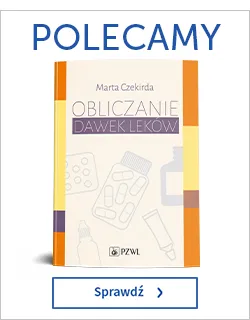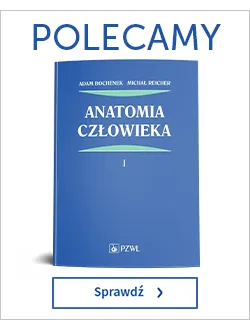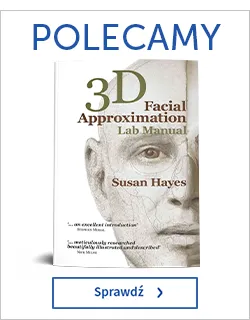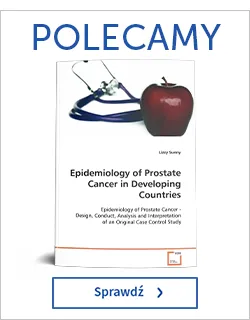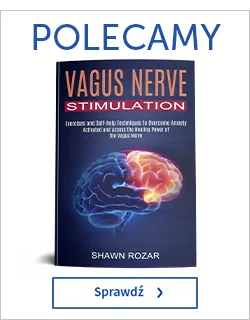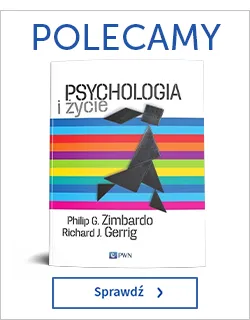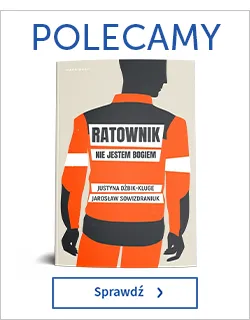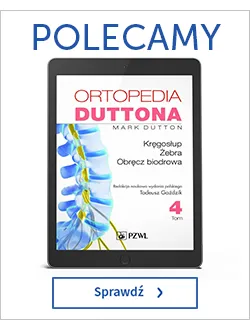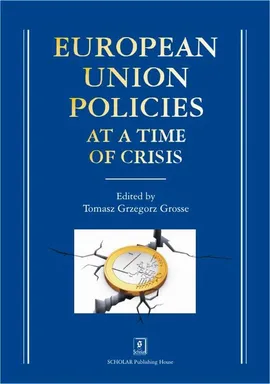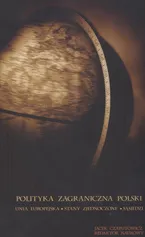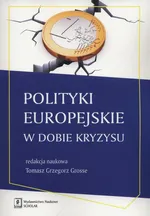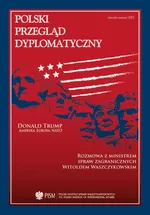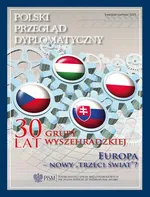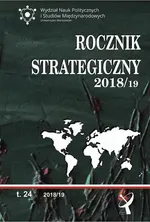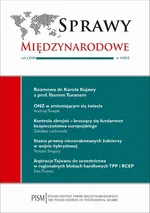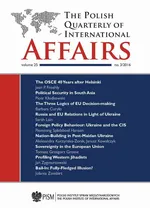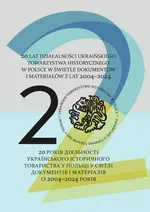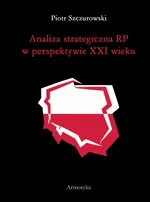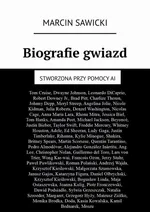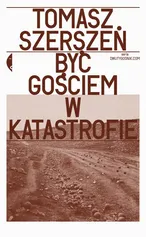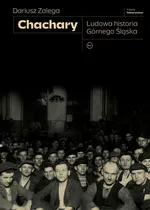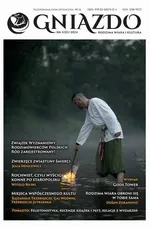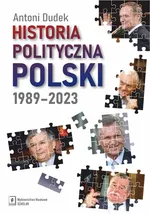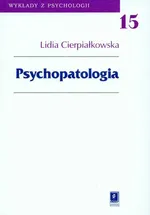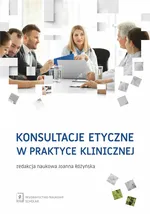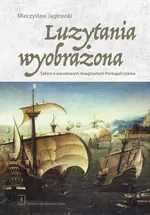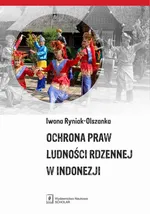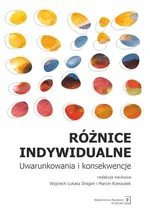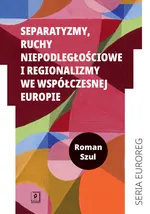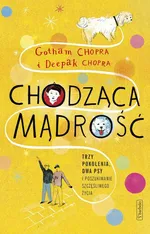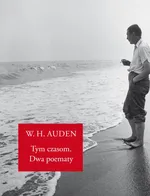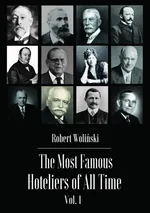- Kategorie:
- Język wydania: ??angielski_pl_PL??
- ISBN: 978-83-7383-826-0
- ISBN druku: 978-83-7383-826-0
- Liczba stron: 352
-
Sposób dostarczenia produktu elektronicznegoProdukty elektroniczne takie jak Ebooki czy Audiobooki są udostępniane online po uprzednim opłaceniu (PayU, BLIK) na stronie Twoje konto > Biblioteka.Pliki można pobrać zazwyczaj w ciągu kilku-kilkunastu minut po uzyskaniu poprawnej autoryzacji płatności, choć w przypadku niektórych publikacji elektronicznych czas oczekiwania może być nieco dłuższy.Sprzedaż terytorialna towarów elektronicznych jest regulowana wyłącznie ograniczeniami terytorialnymi licencji konkretnych produktów.
-
Ważne informacje techniczne
-
Minimalne wymagania sprzętowe:
- procesor: architektura x86 1GHz lub odpowiedniki w pozostałych architekturach
- Pamięć operacyjna: 512MB
- Monitor i karta graficzna: zgodny ze standardem XGA, minimalna rozdzielczość 1024x768 16bit
- Dysk twardy: dowolny obsługujący system operacyjny z minimalnie 100MB wolnego miejsca
- Mysz lub inny manipulator + klawiatura
- Karta sieciowa/modem: umożliwiająca dostęp do sieci Internet z prędkością 512kb/s
-
Minimalne wymagania oprogramowania:
- System Operacyjny: System MS Windows 95 i wyżej, Linux z X.ORG, MacOS 9 lub wyżej, najnowsze systemy mobilne: Android, iPhone, SymbianOS, Windows Mobile
- Przeglądarka internetowa: Internet Explorer 7 lub wyżej, Opera 9 i wyżej, FireFox 2 i wyżej, Chrome 1.0 i wyżej, Safari 5
- Przeglądarka z obsługą ciasteczek i włączoną obsługą JavaScript
- Zalecany plugin Flash Player w wersji 10.0 lub wyżej.
-
Informacja o formatach plików:
- PDF - format polecany do czytania na laptopach oraz komputerach stacjonarnych.
- EPUB - format pliku, który umożliwia czytanie książek elektronicznych na urządzeniach z mniejszymi ekranami (np. e-czytnik lub smartfon), dając możliwość dopasowania tekstu do wielkości urządzenia i preferencji użytkownika.
- MOBI - format zapisu firmy Mobipocket, który można pobrać na dowolne urządzenie elektroniczne (np.e-czytnik Kindle) z zainstalowanym programem (np. MobiPocket Reader) pozwalającym czytać pliki MOBI.
- Audiobooki w formacie MP3 - format pliku, przeznaczony do odsłuchu nagrań audio.
-
Rodzaje zabezpieczeń plików:
- Watermark - (znak wodny) to zaszyfrowana informacja o użytkowniku, który zakupił produkt. Dzięki temu łatwo jest zidentyfikować użytkownika, który rozpowszechnił produkt w sposób niezgodny z prawem.
- Brak zabezpieczenia - część oferowanych w naszym sklepie plików nie posiada zabezpieczeń. Zazwyczaj tego typu pliki można pobierać ograniczoną ilość razy, określaną przez dostawcę publikacji elektronicznych. W przypadku zbyt dużej ilości pobrań plików na stronie WWW pojawia się stosowny komunikat.
European Union Policies at a Time of Crisis
(eBook)-
Druk: Warszawa, 2017
-
Wydanie/Copyright: wyd. 1
-
Autor: Tomasz Grzegorz Grosse
-
Wydawca: Scholar
-
Formaty:
PDF (Watermark)WatermarkZnak wodny czyli Watermark to zaszyfrowana informacja o użytkowniku, który zakupił produkt. Dzięki temu łatwo jest zidentyfikować użytkownika, który rozpowszechnił produkt w sposób niezgodny z prawem. Ten rodzaj zabezpieczenia jest zdecydowanie najbardziej przyjazny dla użytkownika, ponieważ aby otworzyć książkę zabezpieczoną Watermarkiem nie jest potrzebne konto Adobe ID oraz autoryzacja urządzenia.
European Union Policies at a Time of Crisis
In recent years, and more specifically, since the outbreak of the Eurozone crisis in 2010, the model of integration has changed. The rising political power of the strongest Member States and the political segmentation of the European Union into separate circles of integration have become the new reality. These processes have been accompanied by a range of related changes, such as the growing politicisation of the European Commission, increasing institutionalisation of the euro area and petrification of the geographical and political division into central and peripheral states in the EU. At this point, it is difficult to predict whether these changes will prove temporary or permanent, and what will be their systemic consequences (or, in other words, how will they impact Europe’s political system). It is similarly difficult to judge how the changes will influence specific EU policies. An attempt to answer these difficult but compelling questions is the objective of our book.
Tomasz Grzegorz Grosse,
Professor of Political Science and Head of Department of European Union Policies at the University of Warsaw; author of In Search of Geo-economics in Europe and coeditor of The Aspects of a Crisis
The authors of this volume offer a comprehensive analysis of conditions and results of EU policies in the context of European integration. The ambitious scope of the project required the knowledge of economics, history, political science, international relations, law and even sociology. The authors fulfill their promise to the readers: the volume contains a comprehensive and detailed elucidation of the influence of the crisis on the integration practice, and on the contemporary conditions of EU integration, including both its structure and functioning.
Zbigniew Czachór,
author of The Crisis and Disrupted Dynamics of the European Union
The volume edited by Tomasz G. Grosse promises to be a very valuable contribution to Polish European studies. It belongs to the broader field of critical reflections on European integration and as such, it opens new possibilities of constructive debate about the present and the future of the European Union.
Janusz Ruszkowski,
coauthor of Euro: Common Currency of the United Europe
The Authors:
Paweł J. Borkowski, Jacek Czaputowicz, Tomasz Grzegorz Grosse, Krzysztof M. Księżopolski, Justyna Miecznikowska, Jadwiga Nadolska, Artur Nowak-Far, Kamila Pronińska, Małgorzata Smutek, Krzysztof Szewior, Jolanta Szymańska, Joanna Ziółkowska.
Introduction. European Policies and Change in the EU Integration Model 9 Tomasz Grzegorz Grosse Introduction 9 1. The growing importance of intergovernmentalism 10 2. What kind of an integration model emerged during the crisis? 17 3. Political segmentation in Europe 23 4. Main research questions and hypotheses 28 1. Systematisation of Concepts and Models Related to Differentiated Integration and Political Segmentation 33 Joanna Ziółkowska Introduction 33 1.1. Differentiated integration and political segmentation 33 1.2. The beginnings of the debate on differentiated integration 36 1.3. The second wave of the debate 39 1.4. The debate in the 1990s 42 1.5. The differentiation debate following the Amsterdam Treaty 46 1.6. A classification of differentiated integration categories 50 1.7. A proposed classification 53 Conclusions 56 2. European Union Foreign Policy at a Time of EU Crisis and Fragmentation 59 Paweł J. Borkowski, Małgorzata Smutek Introduction 59 2.1. The appeal of a Europe engulfed in crisis 62 2.2. Implementation of the Lisbon Treaty in times of crisis 69 2.3. EU international activities in a regional and problem-related approach, in the context of the crisis and the threat of fragmentation 75 Conclusions 82 3. The Impact of the Changing European Integration Model on the Common Security and Defence Policy 85 Jacek Czaputowicz Introduction 85 3.1. The impact of the crisis on the CSDP 87 3.2. Positions of Member States with regard to the CSDP 90 3.3. Division lines in the CSDP 96 Conclusions 99 4. Economic and Financial Crisis in the European Union: The Definition of the Concept and Scholarly Discussion Over It 103 Artur Nowak-Far Introduction 103 4.1. The economic and financial crisis in the Eurozone 104 4.1.1. The characteristics of the Eurozone Crisis 105 4.2. The Eurozone crisis as a crisis of the EU’s economic governance system 113 Conclusions 123 5. Social Policy at a Time of Changes in the Model of European Integration 131 Jadwiga Nadolska, Krzysztof Szewior Introduction 131 5.1. Social policy in the process of European integration 132 5.2. Social policy in times of crisis 135 5.3. The place of European social policy in the new architecture of economic governance in the EU 138 5.4. Forms of interference of EU bodies in Member States’ social spheres, within the framework of the new economic governance 140 5.4.1. Assistance packages 140 5.4.2. The European Semester 146 5.5. European social policy: between supranationality and intergovernmentalism 150 5.6. Growth of asymmetry in the social sphere between North and South 152 Conclusions 153 6. Cohesion Policy During the Eurozone Crisis 157 Tomasz Grzegorz Grosse Introduction 157 6.1. The influence of the crisis on the cohesion policy 159 6.2. Increased intergovernmental or community action? 163 6.3. Divisions and hierarchy between Member States 168 6.4. The dividing line in cohesion policy 170 Conclusions 176 7. The Common Agricultural Policy at a Time of Crisis 179 Justyna Miecznikowska Introduction 179 7.1. Divisions within the Common Agricultural Policy: consequences of diversified agrarian structure and production potential 181 7.2. Divisions in the Common Agricultural Policy: consequences of different direct payments schemes 182 7.3. Negotiating the MFF: on financing the post-2013 CAP 185 7.4. Discussion on the post-2013 CAP: disputes and divisions within the EU 191 7.5. CAP reform and segmentation of the EU 194 Conclusions 200 8. Energy Policy and the Change in the Model of European Integration 203 Kamila Pronińska Introduction 203 8.1. Energy policy in the contemporary processes of European integration 204 8.2. Determinants of EU energy policy during the crisis in the Eurozone 209 8.3. Intergovernmentalism vs. the community method in EU energy policy 213 8.4. EU energy policy – a mechanism to augment segmentation in the EU or an area in which these tendencies can be halted? 221 Conclusions: Energy policy at a time of crisis – divergent challenges and conflicting interests? 229 9. European Union Climate Policy – the Crisis as a Catalyst for Change 233 Krzysztof M. Księżopolski Research objectives 233 9.1. On the essence of climate change and EU climate policy 233 9.2. Conditions and division relating to climate policy costs 236 9.3. Towards a new integration model in European Union climate policy 244 9.4. The Climate and Energy Package 2030 and the deepening of divisive tendencies 246 9.5. Segmentation in the EU climate policy 253 Conclusions 256 10. Intergovernmentalism vs. Supranationalism in the Migration Policy and Home Affairs of the European Union 259 Jolanta Szymańska Introduction 259 10.1. The direction of “communitarisation”: a historical development of cooperation in the area of home affairs and justice 261 10.2. Reversing the trend? The area of freedom, security and justice in the post-Lisbon period 263 10.3. A change in the political mood, and the unfavourable atmosphere surrounding migration 264 10.4. The first cracks – the “Arab Spring” crisis and the Schengen system reform 266 10.5. The migration crisis and the fight over the distribution of refugees in the European Union 271 10.6. Freedom of movement – not under the same rules for everyone? 274 10.7. “De-Lisbonisation” of cooperation in the field of home affairs: the implementation of the Stockholm Programme and EU priorities in the area of freedom, security and justice for the years 2015–2019 276 Conclusions 278 Summary. Towards Regional Disintegration Theory 281 Tomasz Grzegorz Grosse Introduction 281 1. Results of crises 284 2. Increased intergovernmentalism and the hierarchy of power 289 3. The ambiguous role of the Commission and the weakening of communitarianism 292 4. Divisions in the EU 296 Conclusions: Towards a theory of regional disintegration 300 Bibliography 307 About the Authors 341 Index of names 345
-
Inne autora
-
Inne z kategorii
-
Inne wydawcy

